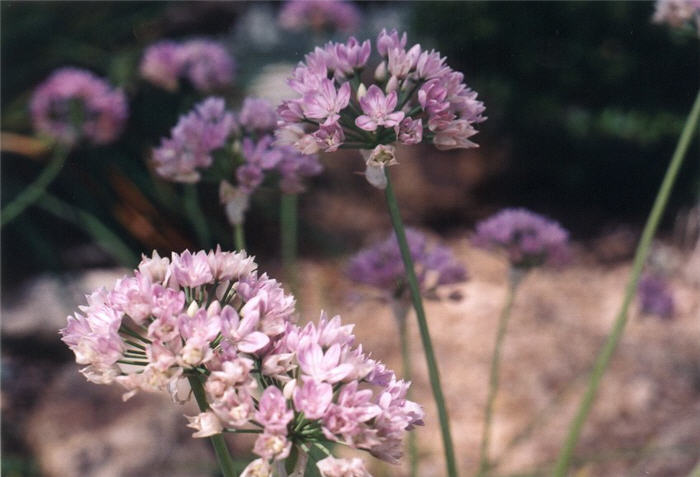| Botanical Name: Allium senescens | |
| Common Name: Circle Onion; German Garlic |

-
Anatomy
-
Culture
-
Design
Plant Type
Ground cover, Perennial, Bulb
Height Range
1-3'
Flower Color
Lavender
Flower Season
Summer
Leaf Color
Grey Green
Bark Color
n/a
Fruit Color
n/a
Fruit Season
n/a
Sun
Full, Half
Water
Low
Growth Rate
Moderate
Soil Type
Sandy, Clay, Loam
Soil Condition
Average, Rich, Well-drained, Dry
Soil pH
Neutral, Basic
Adverse Factors
n/a
Design Styles
English Cottage, Meadow, Mediterranean, Ranch, Spanish, Woodland
Accenting Features
Fragrance, Showy Flowers, Unusual Foliage
Seasonal Interest
Spring, Summer
Location Uses
Entry, Perennial Border, Foundation, Parking Strip, Patio, With Rocks
Special Uses
Cut Flowers, Mass Planting, Naturalizing, Small Spaces
Attracts Wildlife
Birds, Butterflies
Information by: Stephanie Duer
Photographer:
Photographer:
-
Description
-
Notes
German garlic is a perennial bulb that produces long, strap-like leaves of bluish-grey, that have a pleasing bright onion scent when crushed. Flowers are pink globes that appear in July and August. All parts of this plant have an oniony smell when cut or bruised. Although the leaves are edible, this plant is considered to be an ornamental and is not usually used for culinary purposes. Grows 18 inches tall (foliage is usually under 8 inches) and wide. A. s. var glaucum has interesting twisting leaves and is slightly shorter than the species.
Grow in full sun to part shade in well drained, dry to medium dry soil. Will slowly naturalize as clumps spread and through reseeding. If you wish to control re-seeding, deadhead the flowers before seeds form. This plant is attractive to bees, butterflies, and birds; deer tend to leave it alone. Drought-tolerant and well suited to a low water garden. A. sativum is the culinary garlic and A. schoenoprasum is chive.